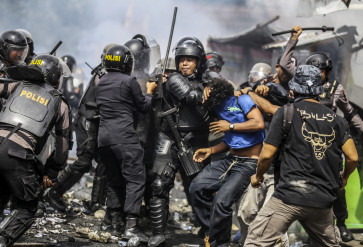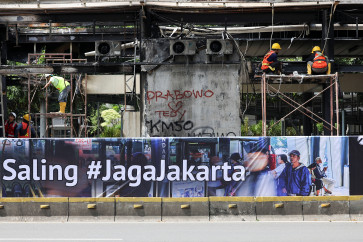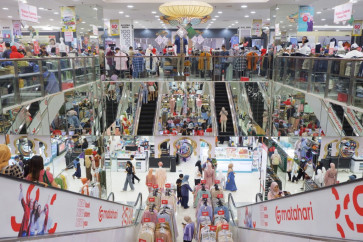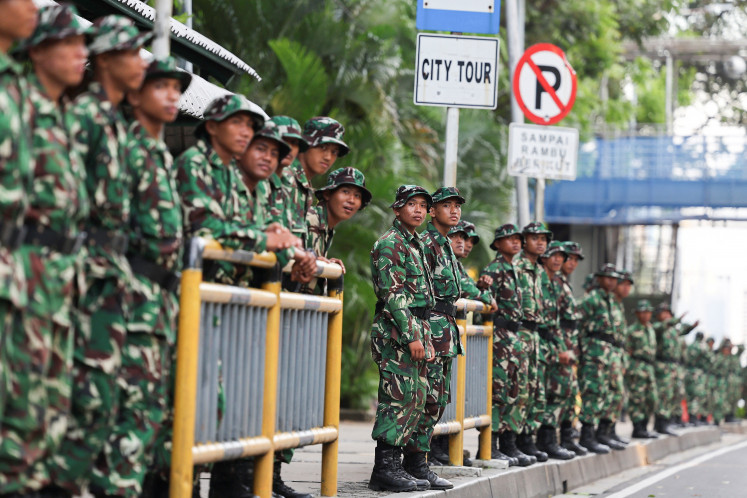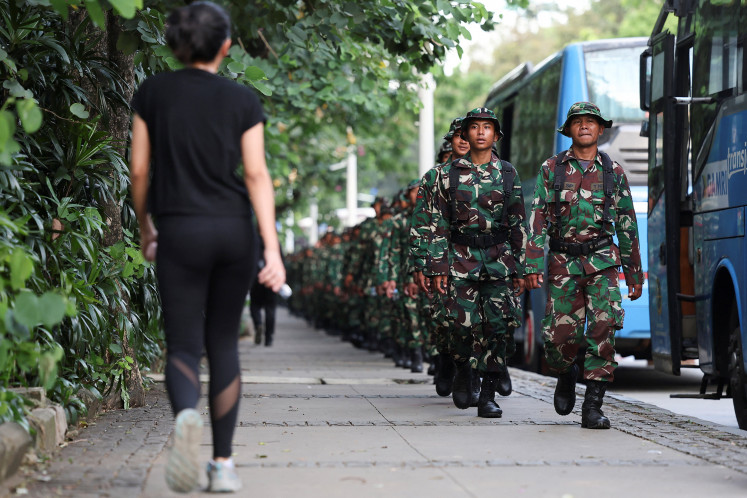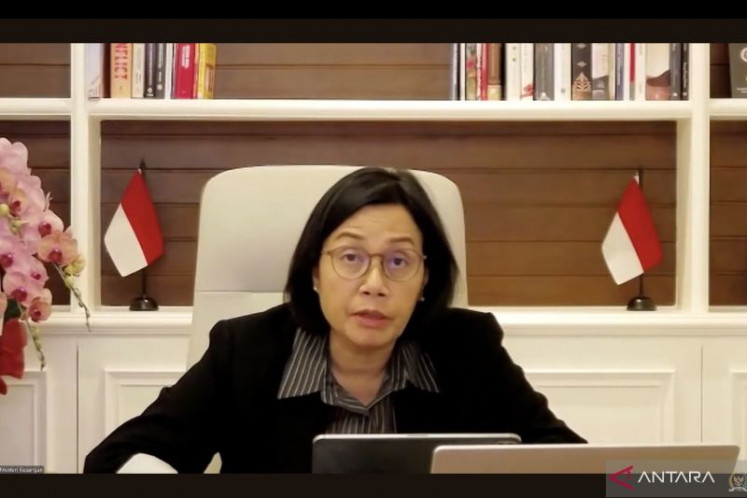Popular Reads
Top Results
Can't find what you're looking for?
View all search resultsPopular Reads
Top Results
Can't find what you're looking for?
View all search resultsBI looking into rupiah printing graft implicating Aussie firms
Bank Indonesia is looking into a media report that two of its senior officials took a US$1
Change text size
Gift Premium Articles
to Anyone
B
ank Indonesia is looking into a media report that two of its senior officials took a US$1.3 million bribe in 1999 from the Reserve Bank of Australia (RBA) to win a $50 million contract to print rupiah banknotes.
“We are conducting an internal check and reviewing files concerning the cooperation between BI and [RBA’s subsidiary] Securency International,” a spokesperson for the Bank Indonesia, Difi Johansyah, told The Jakarta Post on Wednesday. “We are retrieving faxes to find relevant information.”
The alleged bribery was revealed Tuesday by Australian newspaper The Age. According to the report, two BI officials took the bribes from RBA subsidiaries to help the latter win a contract and manipulate future tenders through an Indonesian middleman, Radius Christanto.
The newspaper reported that Radius had sent confidential faxes to Australian executives of those companies to bribe “Mr. S” and “Mr. M” to win a contract to print $50 million worth of Rp 100,000 banknotes for the Indonesian central bank.
It said that Radius, who represented the RBA’s subsidiary — Securency International — and the Note Printing Australia in Indonesia, between 1999 and 2006, was to be paid $3.65 million for his services.
The revelation came when a former Securency employee said recently that he was asked to pay bribes and procure prostitutes for foreign central bank officials.
Radius’s correspondence also revealed collusion between BI officials, himself and RBA banknote executives to mark up the Securency and NPA bid for the rupiah banknotes contract by 20 percent with an agreement that it would then be reduced to a 10 percent mark-up, according to The Age.
Difi also mentioned that BI had asked some of its officials who had the initials of “Mr. S” or “Mr. M”, but came up with nothing.
“We decided to have the banknotes printed in Australia because Indonesia needed durable materials — polymers — which only the Australian printing company could afford,” he said.
He said that in 1999 BI had directly contacted Securency International. He claimed that BI did not know Radius.
“It’s possible that [Radius] Christanto was a middleman from Securency, which like other multinational corporations, often uses marketing agents. They have to pay fees to agents,” he said.
“If the Australian Federal Police want to conduct a joint investigation into the case, of course we will cooperate,” Difi said.
National Police spokesman Insp. Gen. Edward Aritonang told the Post that the Police had coordinated with the central bank in preparation for a possible joint investigation.
“We will seek to exchange information between BI and its Australian counterpart,” Edward said.
BI is also planning to cooperate with other law enforcers, including the Corruption Eradication Commission and the Attorney General’s Office over the case.
The Australian Federal Police are still investigating Securency for paying more than $A20 million ($16.6 million) in bribes using middlemen to win currency printing contracts in Vietnam, Nigeria and Malaysia between 2003 and 2006. (ipa)


